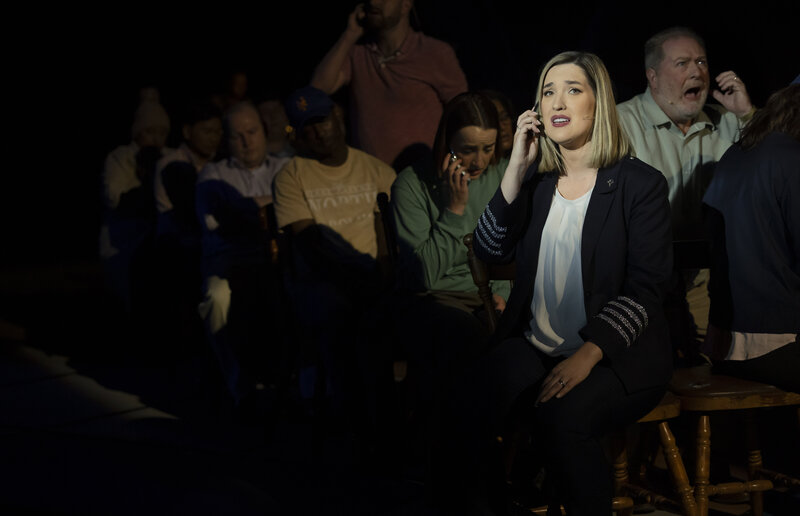Two big movies in a week must be something of a record, but that’s what’s happened with Amy Adams this week. Coinciding with the release of Nocturnal Animals is Denis Villeneuve’s Arrival, a very different film to showcase Adams’ talents.
I have to say the premise sounded a bit hokey to me – alien craft appear in 12 locations around the world and the US brings in linguistics expert Dr Louise Banks (Adams) to try to communicate with them. All the sci-fi tropes from Close Encounters of the Third Kind to Independence Day were immediately conjured up for me. I queried why the director of thoughtful but somewhat left-field films like Incendies and Prisoners would want to take to the well-travelled roads of big-budget sci-fi. The answer came about 10 minutes before the end of Arrival, when the film’s well-hidden twist (also its core conceit) was revealed; making you totally re-evaluate everything that has gone before it. It’s a “wow” moment that will stay with you for some time.
 As mentioned, the plot concerns 12 alien spaceships mysteriously appearing in seemingly random spots around the globe. Although the craft are practically just sitting there, their appearance sparks understandable concern and bewilderment among world governments. With one of the ships hovering over North Dakota, the leader of the response team, Col Weber (Forest Whitaker) calls in linguist Dr Louise Banks and mathematician Dr Ian Donnelly (Jeremy Renner) to try to ascertain the aliens’ motives and (more importantly) plans. The only movement on the ship is the mysterious opening of a door at the bottom every 18 hours. Banks and Donnelly are whisked to the site, and are hurriedly suited up to enter at the next opening. What they find is a cavernous atrium in which the laws of gravity seem to be flipped, ending in a large clear screen. Beyond the screen is a white haze. Then, out of the mist, two gigantic aliens appear.
As mentioned, the plot concerns 12 alien spaceships mysteriously appearing in seemingly random spots around the globe. Although the craft are practically just sitting there, their appearance sparks understandable concern and bewilderment among world governments. With one of the ships hovering over North Dakota, the leader of the response team, Col Weber (Forest Whitaker) calls in linguist Dr Louise Banks and mathematician Dr Ian Donnelly (Jeremy Renner) to try to ascertain the aliens’ motives and (more importantly) plans. The only movement on the ship is the mysterious opening of a door at the bottom every 18 hours. Banks and Donnelly are whisked to the site, and are hurriedly suited up to enter at the next opening. What they find is a cavernous atrium in which the laws of gravity seem to be flipped, ending in a large clear screen. Beyond the screen is a white haze. Then, out of the mist, two gigantic aliens appear.
Arrival charts its way through themes of loss of innocence, primal fear and wariness about others with a surprising ease and grace. It would have been easy to bash the audience over the head, but Villeneuve instead keeps you guessing about where the film is going. Perhaps the film’s penultimate scenes – involving an encounter between Banks and a Chinese general – cross the line, but this is for the most part an intelligent and rather elliptical take on the “aliens are here” sub-genre.
Unlike your average sci-fi flick, things in Arrival tend to unfold slowly. There are no explosions, no cities are levelled and no one asks to be taken to anyone’s leader. The two main threads of the story – the aliens and Dr Banks’ own personal struggle – intersect in unexpected and often breathtaking ways.
That Arrival succeeds at all – let alone to the astounding degree it does – comes down to phenomenal central performance from Amy Adams. I mentioned in discussing Nocturnal Animals that her role there was somewhat constrained; but here she is allowed to give full rein to her talent. The result is a performance of both depth and subtlety – one rightly being mentioned as a potential Oscar nominee. She’s supported by a sympathetic performance from Jeremy Renner (Captain America: Civil War), who also gets to display more range than is normally required of him as Donnelly; and Forest Whitaker (Southpaw) as the cautious mission commander. Michael Stuhlbarg (Trumbo) plays the putative villain of the piece as Agent Halpern, the CIA plant in the operations room.
If you’re not a fan of sci-fi, I’d certainly recommend Arrival, as it’s probably unlike any sci-fi film you’ve ever seen. If you’re an aficionado of the genre, be aware that this is not Star Wars; it’s not even The Day the Earth Stood Still (with which it shares some similarities). Rather, this is a unique and intriguing film that uses its sci-fi plot to launch into a whole lot of different themes. For that alone – but a whole lot besides – this is quite a remarkable film.
Director: Denis Villeneuve
Cast: Amy Adams, Jeremy Renner, Forest Whitaker, Michael Stuhlbarg
Release Date: 10 November 2016
Rating: M
David Edwards

David Edwards is the former editor of The Blurb and a contributor on film and television




